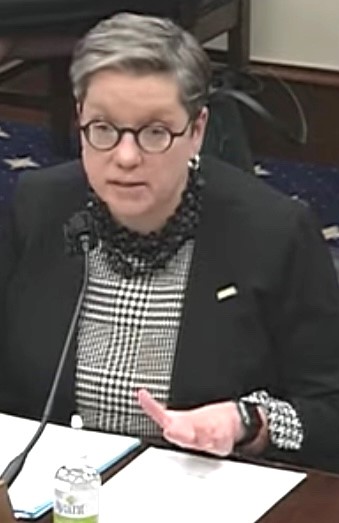Dr. Kress Testifies Before House Subcommittee, Advocates for Needs of Students
On Thursday Nov. 4, Dr. Anne Kress testified on Capitol Hill before the Committee on Small Business’ Subcommittee on Innovation, Entrepreneurship and Workforce Development. The hearing, “The Community College Pipeline to Small Businesses,” addressed how short-term Pell Grants and funding for career and technical education infrastructure would benefit community colleges and address the workforce needs of small businesses. Click here to view the entire hearing. Dr. Kress’ testimony begins at 21:15.
Other panelists included Dr. Rebecca A. Corbin, president & CEO of the National Association for Community College Entrepreneurship, Cary, N.C.; Joe Garcia, chancellor, Colorado Community College System, Denver, Colo. and Frank Boecker, manager of H.R., Sunwest Electric, Inc., Anaheim, Cal.
“We are probably one of the most unsung secrets in higher education, and our connection with small businesses has never been more important,” Kress said.
Before the pandemic, the U.S. had been experiencing a skilled labor shortage for more than a year due to record low unemployment (less than 4 percent). In the first two months of the pandemic, unemployment jumped from 3.5 to 14.8 percent. Now, more than a year-and a-half later, the job market is still in flux. Although the unemployment rate is now down to 4.8 percent, millions of Americans are still looking for work and employers are struggling to find workers to meet the demand.
Community colleges and the services they provide are essential to the COVID-19 recovery effort. From workforce development initiatives, like apprenticeships and job training, to innovation and entrepreneurial development programs like incubators and accelerators, community colleges are central to rebuilding local economies and retooling the American workforce. Members heard from educational leaders about how community colleges can drive economic development and revitalization.
One study from the National Federation of Independent Business noted that 51 percent of small businesses in the United States currently have unfilled job openings. In September, 67 percent of small businesses were trying to hire workers, but 92 percent said they had few or no qualified applicants, said Rep. Young Kim (Calif.-39).
In addition, many of those who are currently employed are looking to gain new skills and switch careers. Since the beginning of the pandemic, nearly one third of workers under age 40 have considered changing occupations, said Rep. Jason Crow (Colo.-06).
Congress is still discussing community college workforce training programs through President Biden’s Build Back Better Act. Read an Inside Higher Ed. overview here. The latest version of that legislation dedicates $20 billion to workforce development, including $4.6 billion for industry partnership grants and funding for adult education and career and technical education. And while not directly related to higher education, the bill would also provide universal prekindergarten and childcare, which would help students with caretaking responsibilities to attend classes.
“That is a common complaint we hear from our students. They want to get an education, but they just can’t do it without affordable childcare,” Garcia said; with Kress adding that it would be “transformational” for community college students to have access to childcare.

Submitted by:
Dawn Selak, Director of Communications, DSelak@nvcc.edu
